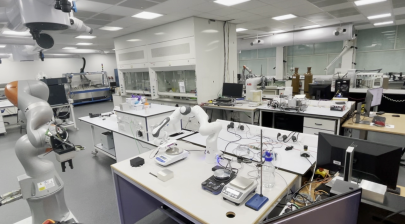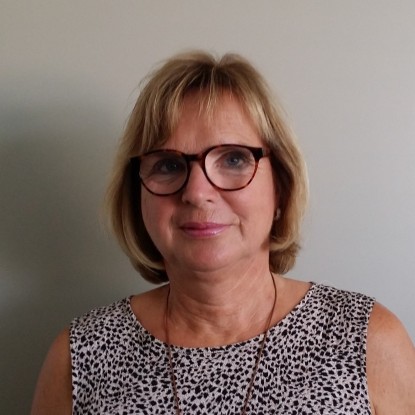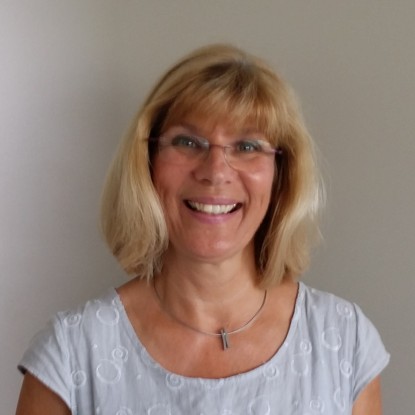Gabriella Pizzuto, University of Liverpool, UK, will give the above talk on:
26.04.2023 (Wednesday)
16:00 – 17:00 (including discussion)
Building S3|11 Room 0012 and via Zoom
Abstract
There is strong demand to accelerate the discovery of materials for industrial applications such as healthcare and energy production. Whilst our robotic scientist has outperformed human-level performance in finding clean sustainable fuels, there are still open problems when it comes to having intelligent heterogeneous robotic systems working in laboratories designed for human scientists. In this talk, I will highlight our current progress on using robotics and artificial intelligence in our Autonomous Chemistry Lab, a unique and representative real-world material discovery laboratory. I will also discuss some of the additional challenges associated with having robots in this semi-structured environment surrounded by human scientists, and how we are pushing the boundaries of robotics research by deploying robots into a Chemistry laboratory environment. Finally, my talk will present the lessons learned and suggest our vision to specifically address open questions in this field, to bring us closer to our goal of creating smarter robotic scientists capable of carrying out long-term experiments.
Short CV
Dr Gabriella Pizzuto is an interdisciplinary early career researcher in robot learning and incoming assistant professor in robotics and Chemistry automation at the University of Liverpool. She is currently working as the lead research associate on the ERC Synergy Grant 'Autonomous Discovery of Advanced Materials' (ADAM). Her research efforts in the field of robotics for laboratory environments have led to an ICRA 2022 outstanding automation paper award finalist. Previously, she was a research associate at the Edinburgh Centre for Robotics working on physics-constrained learning and uncertainty estimation in robot dynamics model learning. She obtained her Ph.D. in Computer Science from the University of Manchester, where she was also a Marie-Sklodowska Curie early stage researcher and a visiting scholar at the University of Edinburgh and Italian Institute of Technology. She is broadly interested in different topics within the intersection of robot learning, vision and control, focusing on generalisation and safe human-robot collaboration, particularly for real-world environments such as physical sciences laboratories.
Guests via Zoom are welcome:
Meeting Link: https://tu-darmstadt.zoom.us/j/65324628051?pwd=ZXQyZk1EYkExa01BMlVMU2hPRjRUUT09
Meeting ID: 653 2462 8051
Pass Code: 569811





